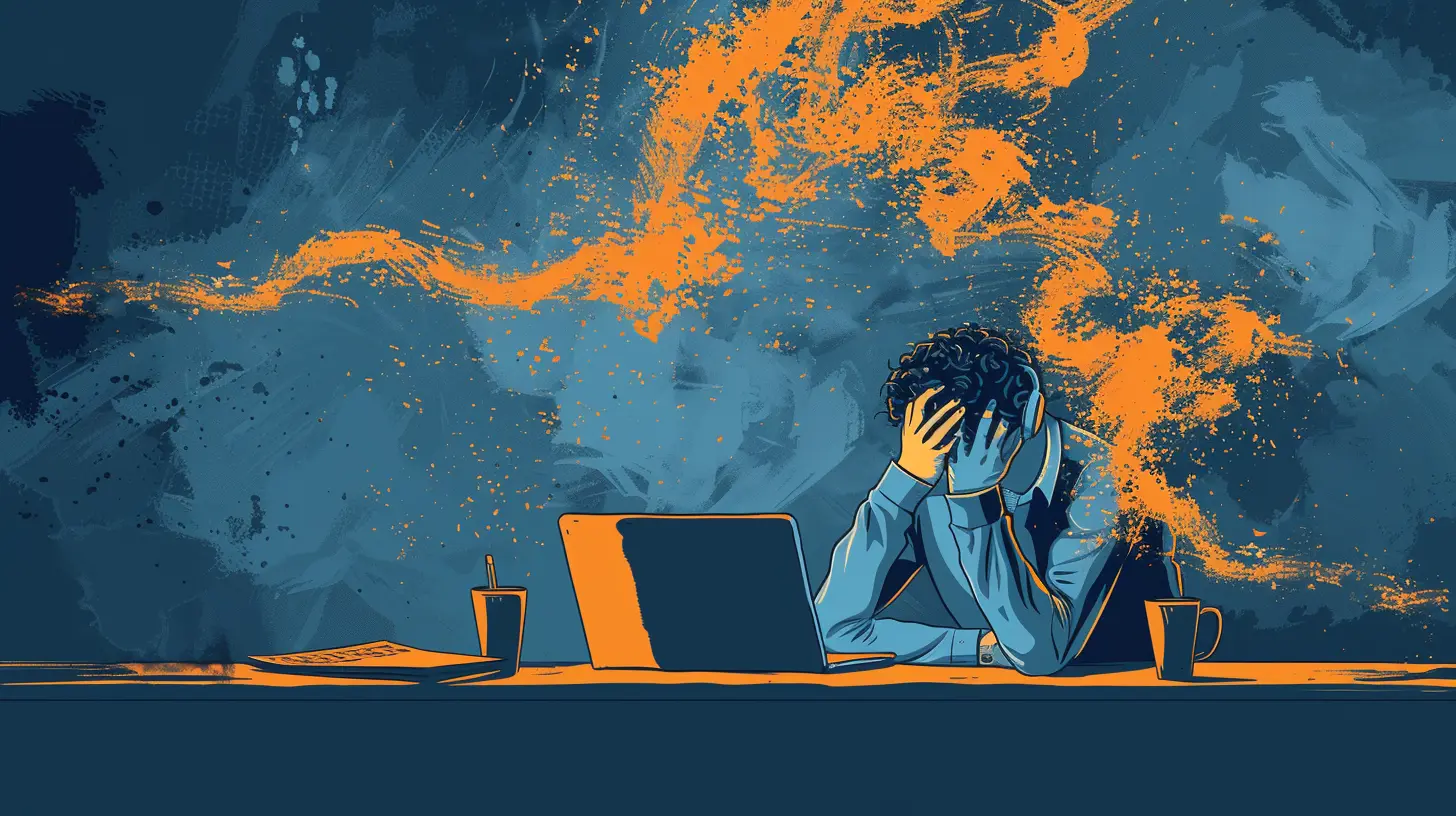Understanding Burnout: How to Recognize and Prevent It in the Workplace
27 June 2025
Burnout is like an invisible weight that slowly crushes your motivation, energy, and mental clarity. It doesn’t happen overnight; it creeps in subtly—one stressful day at a time—until suddenly, you’re emotionally drained, mentally exhausted, and physically worn out.
The modern workplace moves at an exhausting pace, and with endless deadlines, high expectations, and constant connectivity, burnout has become a serious problem. But what exactly is burnout? How can you recognize it before it takes over? And most importantly, how do you prevent it? Let’s dive into it.

What Is Burnout?
Burnout isn’t just feeling tired or having a rough day at work. It’s a chronic condition that builds up over time due to prolonged stress and emotional exhaustion. The World Health Organization (WHO) classifies burnout as an "occupational phenomenon" that results from unmanaged workplace stress.It typically comes with three key symptoms:
- Emotional Exhaustion – Feeling drained, overwhelmed, and worn out, both mentally and physically.
- Cynicism & Detachment – Developing a negative or indifferent attitude toward your work and coworkers.
- Reduced Performance – Struggling to concentrate, meet deadlines, or perform tasks efficiently.
If left unchecked, burnout can impact every aspect of life, including personal relationships, mental health, and even physical well-being.

Signs You Might Be Burned Out
So, how do you know if you’re burned out or just having an off week? Here are some red flags:1. Constant Fatigue
If you wake up tired, stay tired, and go to bed exhausted—even after a full night's sleep—this could be a sign of burnout. It's more than just physical tiredness; it’s emotional and mental exhaustion.2. Loss of Motivation
Remember when you were passionate about your job? If that fire has fizzled out and you're just going through the motions, burnout might be the culprit.3. Increased Irritability
Burnout can make even the smallest inconveniences feel maddening. If you're snapping at coworkers or feeling frustrated over minor things, it might not just be a bad mood—it could be stress taking its toll.4. Decreased Productivity & Focus
Feeling scattered? Struggling to complete tasks that once felt easy? Burnout can make it difficult to concentrate, leading to mistakes, procrastination, and decreased efficiency.5. Physical Symptoms
Burnout doesn't just affect your mind—it impacts your body too. Frequent headaches, muscle tension, stomach issues, or a weakened immune system may all be signs that stress is wearing you down.6. Detachment from Work
Do you feel disconnected from your job? If you’ve started dreading work, avoiding responsibilities, or feeling emotionally numb towards your tasks, burnout could be to blame.
The Root Causes of Burnout
Understanding why burnout happens is the first step in preventing it. Here are some of the most common workplace factors that contribute to burnout:1. Excessive Workload
Trying to juggle too many tasks at once? An overwhelming workload is a fast track to burnout. Constant pressure to meet deadlines or take on extra responsibilities can drain your energy and enthusiasm.2. Lack of Work-Life Balance
If work is consuming your personal time, that's a problem. Everyone needs time to recharge, and without a proper balance, burnout is inevitable.3. Lack of Control
Employees who feel powerless in their roles—unable to make decisions or influence their work environment—are more likely to experience burnout.4. Unclear Expectations
Confusion about job responsibilities or shifting priorities creates stress and frustration, making it harder to perform effectively and confidently.5. Toxic Work Culture
A workplace filled with negativity, office politics, or lack of support can make even the most passionate worker feel mentally drained.6. Limited Recognition & Reward
If you're putting in effort without acknowledgment or appreciation, motivation tanks, and frustration builds—leading to burnout.
How to Prevent Burnout Before It Takes Over
Burnout isn’t inevitable. With the right strategies, you can protect your mental health while maintaining productivity. Here’s how:1. Set Boundaries
Stop answering emails at midnight. Don’t check Slack on weekends. Set clear boundaries between work and personal life. If you’re always "on," you’ll never fully recharge.2. Prioritize Self-Care
Your health is non-negotiable. Get enough sleep, eat nutritious meals, exercise regularly, and take breaks throughout the day. Your body and mind are your most valuable assets—treat them well.3. Learn to Say No
You don’t have to take on every project, attend every meeting, or work late every night. Overloading yourself only leads to exhaustion, so be selective about where you invest your energy.4. Take Regular Breaks
Working nonstop doesn’t equal productivity. In fact, it often leads to burnout. Step away from your desk, take a short walk, or just breathe for a few minutes. Your brain needs time to reset.5. Seek Support
If you’re struggling, talk to someone—a manager, mentor, or therapist. Burnout thrives in isolation, so don’t be afraid to ask for help.6. Find Meaning in Your Work
Burnout often stems from feeling disconnected from your purpose. Try to remind yourself why you started, focus on the aspects of your job that bring fulfillment, or explore new projects that reignite your enthusiasm.7. Encourage a Healthier Workplace
Employers also play a role in preventing burnout. Encouraging open communication, recognizing employees' efforts, and fostering a supportive work environment can make a huge difference.When to Seek Professional Help
There’s a fine line between workplace stress and full-blown burnout. If your symptoms persist despite making lifestyle adjustments, or if burnout is affecting your mental health (anxiety, depression, etc.), seeking professional help is essential. Therapy or counseling can provide valuable coping mechanisms, helping you recover and regain balance.
Final Thoughts
Burnout isn't a badge of honor—it's a warning sign. The hustle culture may glorify overworking, but at what cost? Your well-being matters, and your productivity should never come at the expense of your health.If you’re feeling stretched too thin, take a step back, reassess, and prioritize yourself. Work will always be there—but you need to be there too.
all images in this post were generated using AI tools
Category:
Workplace PsychologyAuthor:

Ember Forbes
Discussion
rate this article
2 comments
Lola Reed
This article effectively highlights the critical signs of burnout and provides practical strategies for prevention. Understanding the root causes in the workplace is essential for fostering a healthier environment, enhancing employee well-being, and ultimately boosting productivity and morale. Great insights!
November 27, 2025 at 5:53 AM

Ember Forbes
Thank you for your thoughtful feedback! I’m glad you found the insights valuable for promoting a healthier workplace.
Arwen McKeever
This article beautifully highlights the importance of recognizing burnout—awareness is the first step toward healing. Thank you!
July 2, 2025 at 4:45 AM

Ember Forbes
Thank you for your kind words! I'm glad you found the article helpful in raising awareness about burnout.


